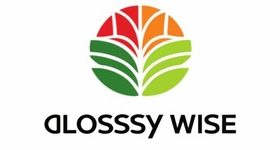Alchemy has long captured the imagination, conjuring images of arcane laboratories, transmuted metals, and the legendary philosopher’s stone. Yet beneath its mystical surface lies a rich tapestry of philosophy, science, and psychology. Paul Kiritsis’ The Riddle of Alchemy brings this hidden world into focus, offering a compelling exploration that blends history, depth psychology, and spiritual inquiry.
Drawing on his diverse academic background in clinical psychology, English literature, and the history of science, Kiritsis approaches alchemy as far more than a relic of the past. He presents it as a dynamic, multidimensional tradition—one that has evolved over centuries and continues to resonate in the modern world.
In The Riddle of Alchemy, Kiritsis guides readers through the origins and development of alchemical thought, beginning in ancient Egypt and Hellenistic Alexandria, and moving through medieval Europe to the Renaissance. He reveals alchemy’s dual identity: part early science, part esoteric philosophy. In its symbolic language and practices, alchemy unified disciplines as varied as metallurgy, cosmology, medicine, and mysticism. More than the literal transformation of matter, Kiritsis shows that alchemy was—and remains—a metaphor for personal and spiritual transformation.
A standout aspect of the book is its interpretation of alchemy through the lens of depth psychology, particularly the theories of Carl Jung. Kiritsis explores the idea that the alchemical journey parallels Jung’s concept of individuation—the integration of the conscious and unconscious mind. Through vivid analyses of manuscripts like the Splendor Solis, he breathes life into alchemy’s dreamlike symbols, reinterpreting them as powerful tools for self-discovery and psychological growth.
Kiritsis also invites readers to rethink alchemy’s place in the scientific landscape. Without venturing into pseudoscience, he raises provocative questions about the dominance of materialist thinking and whether alchemical ideas might inform new scientific paradigms. This fusion of rigorous scholarship, psychological insight, and philosophical reflection makes The Riddle of Alchemy a truly distinctive work.
Praised by Kirkus Reviews as “a well-written, expertly researched analysis of the history and legacy of alchemy,” the book is both intellectually rich and accessible. Kiritsis writes with clarity and passion, offering a fresh lens through which to view one of humanity’s most enduring quests: the pursuit of transformation. Whether your interest lies in history, psychology, or the metaphysical, The Riddle of Alchemy is an essential read for those seeking to understand the deeper dimensions of change—both in the world and within the self.
Purchase The Riddle of Alchemy by Paul Kiritsis on Amazon here: https://www.amazon.com/Riddle-Alchemy-Paul-Kiritsis-ebook/dp/B0DM1HY2GV.

